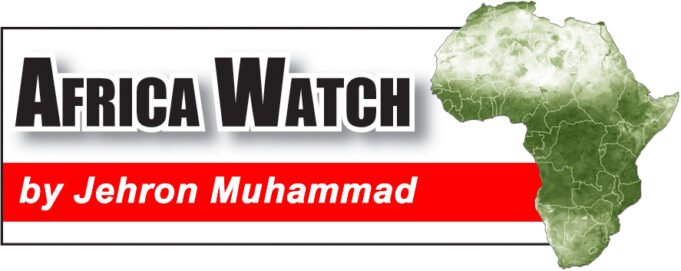“Playing neocolonial games with African money” is how the African Executive, a weekly Nairobi-based opinion and business magazine, framed a 2020 article on the CFA franc penned by this writer. CFA is short for Communauté Financière Africaine or African Financial Community.
The article chronicled French President Emmanuel Macron’s 2019 joint press conference with Ivorian President Alassane Ouattara announcing the “end” of the CFA franc. According to President Ouattara, the currency’s name would change to “Eco.”
France would no longer govern or manage the common currency of the Ivory Coast and seven other so-called Francophone or West African states. Additionally, France would “stop holding 50 percent of the reserves in the French treasury,” said President Ouattara.
Nothing during the press conference was mentioned concerning the Central African countries still chained to the CFA franc.
In the December 2023 edition of the African Export-Import Bank: Contemporary Issues in African Trade and Trade Finance (CIAT)—a policy journal by the African Export-Import Bank (Afreximbank)—several economists focused on Africa and it still being chained to France’s CFA franc.
These economists included Helen Epstein from Bard College, Dr. Ndongo Samba Sylla, co-author of the book, “The Invisible Weapon of Franco-African Imperialism,” and Ali Zafar, economic adviser and head of development policy research hub at the United Nations Development Program.
In this special issue of CIAT, according to Benedict Okey Oramah, president and chairman of the board of directors of the African Export-Import Bank, “contributors review existing monetary and exchange rate agreements, paying particular attention to the CFA franc, the monetary heritage of French colonialism in Africa.”
Oramah continued, “They offer insights into the monetary reforms that should be carried out to maximize the AfCFTA’s development impact and deepen regional integration.
The latter is especially important now amid the emergence of a poly-crisis world and rising risks of fragmentation, which have been exacerbated by the return of beggar-thy-neighbor policies and caused policymakers around the world to reconsider the role of exchange rates and monetary policy as tools for competitiveness.”
As Epstein wrote in her opening salvo, “The colonial-era currency limits the economic freedom of the African countries that use it and subjects them (to this very day) to continued French authority.”
She continued, “Ivorian leader Alassane Ouattara announced in December 2019 a plan to reform the CFA system in eight West African countries, including Niger, Côte d’Ivoire, and Senegal. Until then, 50 percent of the monetary reserves of these countries were held in ‘operations accounts’ in the French treasury, an apparently profitable arrangement for France.”
It gets worse. “So, the Africans were effectively paying France to hold their money. It’s possible that France reinvested that money and then pocketed the profit. We don’t know for sure because French policy forbids disclosure of this information, even to the leaders of the countries whose money it was,” Epstein wrote.
When asked about the Eco while being interviewed by Africa Watch from his office in Dakar, Dr. Sylla explained that the Eco You was initially the name chosen by ECOWAS (Economic Community of West African States).
“It includes the 15 countries of West Africa. This economic community had a plan of a single currency for the 15 African countries. And, in June (2019) they decided that this single currency would be named Eco, short for ECOWAS. And they decided that they would no longer be connected to the Euro but would be a flexible exchange rate. It would be connected to a basket of currencies, but not to the Euro,” Dr. Sylla said.
In the CIAT article he reflected on one of the most important aspects of the CFA franc—the French “guarantee” of the currency’s convertibility, which has survived several reforms, including the transition from a peg to the defunct French franc to the euro.
Sylla argued that the “so-called guarantee is a convenient myth that legitimizes the French government’s continued interference in the economic and monetary affairs of African countries in the post-independence era.”
According to Zafar, at the heart of the CFA franc arrangement, “are three forces: France and the French Treasury, the Francophone African political elites, and the International Monetary Fund (IMF).” France supports the zone for historical, political, and economic reasons, he noted.
Lastly, Yasser Louati, a French political analyst and head of the Committee for Justice and Liberties summed up the CFA as a detriment to Africa. “Given the vast disparities between African and French economies, the pegging of the region’s currency to a strong currency like the French franc yesterday and the euro today is unnatural and has direct implications on the economic development of the CFA Franc region:
reduction in liquidity when governments need it, penalties in exports, reduced the margin for central banks to intervene, which in turn makes them focused solely on fighting inflation and not economic development, the scarcity of investment money for businesses and households face prohibitive interest rates,” Louati wrote.
Follow @JehronMuhammad on X, formerly Twitter













